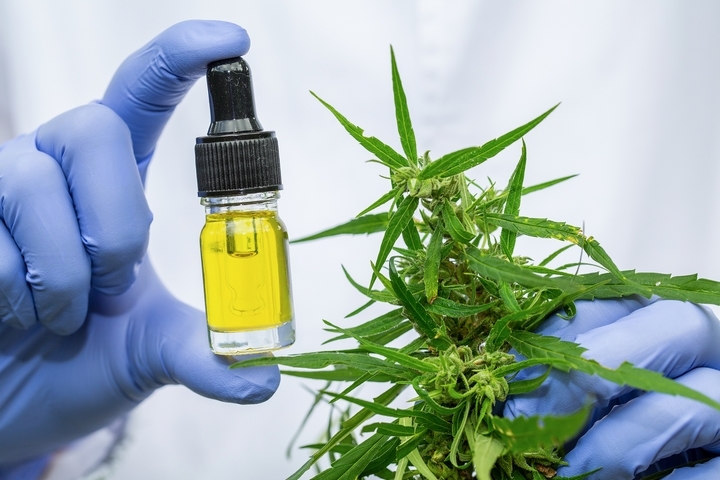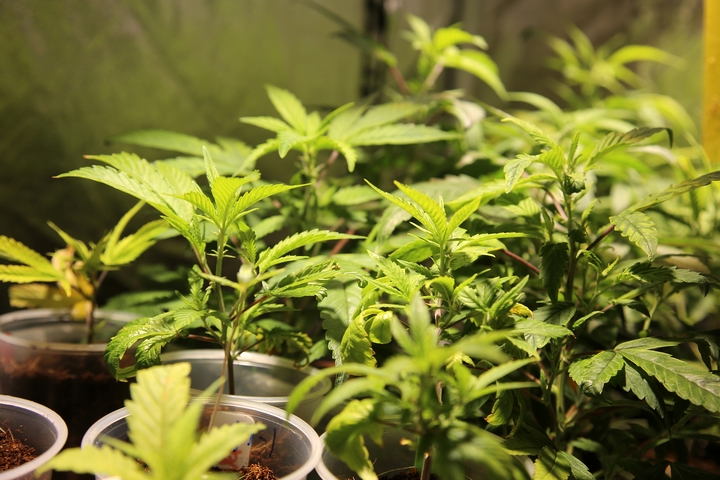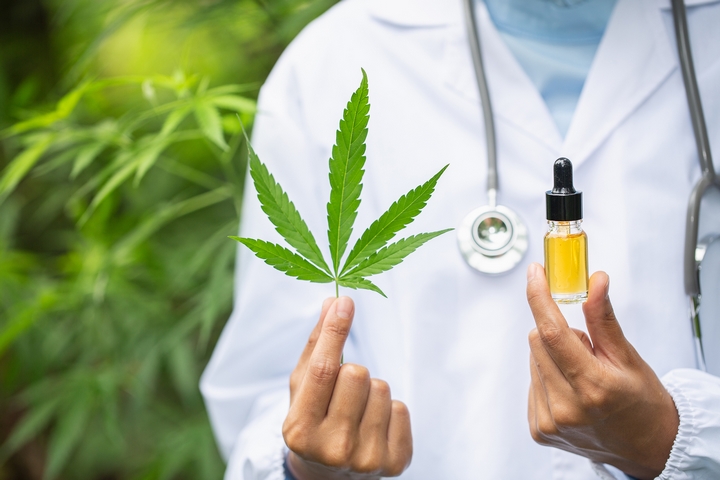The cannabinoids in cannabis have been considered medicinal and therapeutic for centuries, although their benefits and drawbacks are still widely debated in western medicine and among users.
Can cannabis oil cure cancer? The simple answer of whether cannabis oil can cure cancer is: we don’t know. There simply isn’t enough solid data to say for sure. However, there are many reports of the benefits that cannabis oil could provide to cancer patients.
Here is a detailed guide to help you understand the relationship between cannabis oil and cancer:
Major cannabinoids

The two most commonly known cannabinoids that come from cannabis are THC (tetrahydrocannabinol) and CBD (cannabidiol). There are many active compounds found in the plant, but THC and CBD are the most popular. They are both recognized for certain medical or therapeutic benefits when ingested by users, and both are available in many forms, including oils.
Tetrahydrocannabinol (THC)

THC comes from the marijuana plant, and is the cannabinoid that gives people the feeling of being high. This cannabinoid activates parts of the brain that affect pleasure, thinking, concentration, coordination, and one’s perception of time and senses.
Cannabidiol (CBD)

This compound will not give users the high feeling that comes with THC ingestion. Instead, it is better known for pain and anxiety management. Although there isn’t consistent and definitive research for the benefits of CBD, it is legal anywhere, since CBD is also found in the hemp plant, where THC is not found.
Types of cannabis oil

There are multiple types of cannabis oil available in the market. These include CBD, hemp-derived, marijuana-derived, and Rick Simpson oil. Each has different benefits and may be used for different purposes.
As mentioned, CBD oil is nonpsychoactive, meaning it won’t give the high feeling that other oils might give. CBD oil does not typically contain THC, and is usually more effective for easing the effects of pain and anxiety.
Hemp-derived cannabis oil

Hemp-derived oil will also not contain THC, but will contain some CBD. However, the quality will be slightly lower, and may, therefore, be less effective. It is a great option for individuals living in places where marijuana is still not legal to gain access to the perceived positive benefits of CBD oil.
Marijuana-derived cannabis oil

Oil derived from the marijuana plant would contain high levels of THC, which is be responsible for giving users the high feeling they experience. Marijuana-derived oil also contains significant levels of CBD.
Side effects of cannabis oil

Cannabis oil (or other methods of ingesting cannabis) with THC is often used to stimulate the appetite of individuals undergoing cancer treatments. Treatments like radiation therapy can suppress the appetite, making it difficult for patients to maintain a healthy weight and acquire proper nutrients at a time where their body needs them most.
Nausea

Nausea and vomiting often come as a result of chemotherapy, but can also come about in cancer patients as a result of other types of treatment, or as a result of the illness itself. THC helps to relieve feelings of nausea
Pain relief

As a result of the inflammation of and pressure on internal organs, as well as the nerve damage that cancer can cause, pain is a very common symptom of cancer and its treatment. Both CBD and THC are used to help relieve pain on the CB2 and CB1 receptors (respectively) in patients. CBD helps reduce inflammation, while THC is more effective for relieving pain caused by nerve damage.
Cannabis oil and cancer

Some studies show promising results between the ingestion of CBD and lower rates of cancer. However, studies like this must be long term, and must be well controlled. Such studies have not yet been accurately undertaken, so it is not possible to say for sure if ingesting CBD or THC oil can help prevent cancer.
With tat said, smoking marijuana still has negative effects on health, as does vaping, new studies have shown. So if ingesting either THC or CBD in hopes of preventing cancer, it may be a good idea to use an alternative method, like oils.
While some studies have, again, show that cannabis can have a positive effect in helping to cure cancer, this is also still not definitive. Marijuana is legal in many places to smoke for both recreational and medicinal purposes, and individuals may choose to include its use in their treatment in the hopes that it will help.
Scientific discoveries of curing cancer
Over the years, studies have shown some promising effects that the different compounds of marijuana can have on certain diseases and illnesses.
Although inconclusive, meaning more studies need to be done, it is believed that THC and another compound found in marijuana called CBN can have positive effects on lung cancer by decreasing the rate of growth. Other studies show that THC and CBD can assist in the improved efficacy of radiation therapy.




